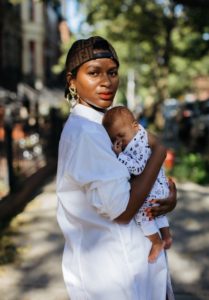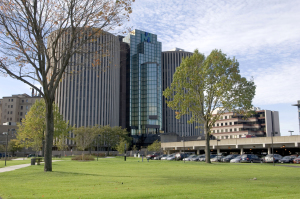By Morgan Whaley, Research Assistant, Center for Health Equity Engagement Education and Research
Early in the pandemic, it became evident that access to reproductive and sexual health services was in jeopardy. Abortions were considered non-essential in some states. Governor Mike DeWine attempted to use the pandemic as an opportunity to further the political and religious agenda of limiting abortions in Ohio. Globally, reproductive and sexual health supplies like condoms and birth control became harder to get. The downturn of the economy and the rise of unemployment has increased the number of individuals who are unable to afford and access birth control.

I become increasingly worried about how black maternal deaths have been and will continue to be affected as the number of COVID-19 cases rapidly increase in the US. It is no secret that racism can have a catastrophic and deadly role in the medical setting for pregnant black women. Before the pandemic, black women were three times more likely to die in childbirth and pregnancy than their white counterparts, regardless of education or class, in the US. Some individual states have higher disparities. For example, black women in New York City are eight to twelve times more likely to die during their pregnancy. A New York Times Article titled, “She was Pregnant with Twins During COVID. Why Did Only One Survive?- Why Being Black and Giving Birth in New York During the Pandemic is so Dangerous.” detailed multiple anecdotes and experiences of black women giving birth during the pandemic. The shift to telehealth has made communication between provider and patient more difficult, especially for prenatal appointments. A man describes how his pregnant partner’s symptoms, which were expressed in appointments, were dismissed. Couples detailed how difficult it became to schedule appointments and had received inadequate care. As hospitals scramble to manage COVID cases, black maternal patients’ concerns are not being heard, leading to deaths.
Black doulas are finding themselves fighting black maternal mortality in the US. A doula is an individual who provides emotional care and support during any stage of a reproductive process. They advocate for the rights of a patient during reproductive experiences like IUD insertion, birth, abortions, etc. There has been the emergence of community doula and midwife programs that work in low-income and minority populations, making the service more accessible. But hospitals continue to limit the number of individuals that can accompany a patient in the hospital, meaning many black women who planned to have a doula or other guest present for their birth, are forced to change their plans. Without strong support and advocates, Black women are left exposed.
Lastly, I wonder if the pandemic will create a shift in birthing culture in the US. Will the fear of contracting coronavirus and limitations in advocacy and support lead to more women seeking home births? Will more black women opt for non-hospital birth settings to seek refuge and find care during their birthing experience?

